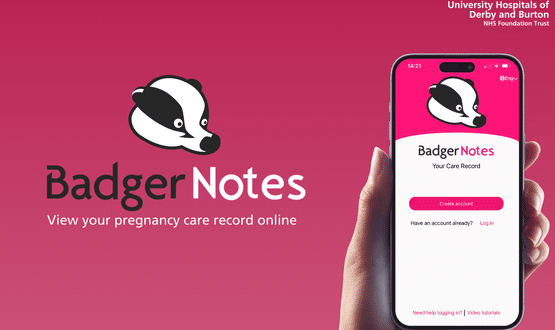Industry news in brief
- 6 May 2022

The latest Digital Health News industry round-up brings news of a digital prehabilitation scheme for cancer patients, an ORCHA collaboration in the US and the use of Robotic Process Automation for GP referrals at East Lancashire Hospitals.
Mayden and SilverCloud collaborate for mental health support
Digital care record supplier, Mayden, and online cognitive behavioural therapy solutions provider, SilverCloud Health, have teamed up for a direct to digital approach, enabling people with mental health issues to receive immediate digital therapy support.
When a person makes an online self-referral to an NHS Improving Access to Psychological Therapy (IAPT) service, they will be able to select a course of clinically-validated cognitive behavioural therapy. The therapy is available seven days a week, 24-hours a day.
The aim of the collaboration is to bridge the gap between the first contact with the IAPT service and a patient’s first appointment, and to ensure they are supported throughout.
The interoperability of Mayden’s EPR software, iaptus, means that the process is smooth. Patients who have self-referred are encouraged to fill out a form, which then automatically connects to the SilverCloud platform. Support is instant, even outside of core operating hours for the IAPT service.
Fiona Dawson, director at Mayden, said: “This ‘Direct to Digital’ approach encourages people seeking help to provide the key information when they first approach IAPT, assisting the service team to efficiently process their referral and assessment and at the same time offering access to support through a SilverCloud programme.
“Whatever the outcome of someone’s self-referral to IAPT, they get the initial support right there in their hand; that can make such a difference to their ongoing engagement with mental health services.”
Engaging with the platform means that patients are able to learn about relevant treatments while they wait for assessment, boosting their engagement. With data being captured automatically to a patient’s digital record, clinicians have access to more information ahead of seeing a patient which can speed up the assessment period too.
Douglas Hiscock, product lead at SilverCloud Health said: “The ability to rapidly access NICE approved digital therapeutic programmes when the person is most motivated is the cornerstone of the IAPT services.
“The partnership between IAPT services, Mayden and SilverCloud has made this a reality. Now services can be provided direct through the SilverCloud platform without the administrative burden. It is an integration that speeds up access and lowers the barriers to treatment.”
The direct to digital approach is being adopted at other mental health trusts too, including Nottingham, Birmingham, Berkshire and Dorking.
Macmillan Cancer Support and Onkohealth partner for digital prehabilitation
A pilot scheme from Macmillan Cancer Support and digital health experts Onkohealth is being launched across multiple NHS cancer treatment centres to provide patients with a free personalised support programme to support their recovery.
The programme will be part of their NHS care and aims to improve their health and quality of life, and help recovery while they undergo cancer treatment.
Jamie Kichenbrand, head of innovation commercial partnerships at Macmillan Cancer Support said: “Prehabilitation can make a huge difference to people as they prepare for and go through treatment, however unequal provision of programmes and capacity challenges across the NHS can prevent people from accessing this vital care and support.
“We are delighted to be partnering with Onkohealth so we can better understand how their digital service can be best applied to ensure everybody living with cancer has access to invaluable expertise and guidance on preparing for treatment.”
The prehabilitation programme is based on a scheme that was trialled within a leading NHS trust. Onkohealth’s digital platform is enabling it to be scaled up across the NHS. Research into the original programme found that patients have significantly better outcomes from its use, including a higher likelihood of completing chemotherapy as planned, a shorter hospital stay and lower risk of treatment-related pneumonia.
In addition, initial research has also linked the use of the digital version of the programme with an increase in people’s level of physical activity and a reduction in feelings of anxiety and depression.
The programme is structured to suit each patient based on their physical, psychological and clinical profile, with tailored support, goals and structure. Through the secure app, patients and their clinical teams can track their goals, symptoms and treatment side effects. The specialised health coaching and support will be provided by an experienced clinical team to ensure a quality patient experience.
Ruth Dixon del Tufo, head of partnerships and strategy at Onkohealth, said “I can see there has been a huge shift towards digital innovation and automation during the pandemic. We know that we need to tackle health inequalities by broadening access to prehabilitation services for all patients undergoing treatment for cancer, however scaling these services has been challenging.
“This kind of intelligent and innovative technology will hopefully enable us to provide prehab at a much larger scale, at lower costs and with comparable or better outcomes than face to face services.”
East Lancashire Hospitals adopts digital transformation technology
East Lancashire Hospitals NHS Trust (ELHT) is using NDL’s Robotic Process Automation (RPA) technology to optimise its GP referral system and speed up its administration process for hospital consultation
The new automated system is seeing 15,000 monthly referrals being processed automatically, saving time equivalent to two full-time healthcare workers. The process is also saving approximately 83,000 sheets of paper every month, contributing to the NHS’ ongoing paperless initiative, and making cost savings for the trust.
The technology is reducing the level of human interaction needed for each referral which in turns means concerns around GDPR are reduced and the risk of data loss is minimised. It also means staff are able to use their time and skills for other tasks, improving the overall patient experience and clinicians’ job satisfaction levels.
The digital-first approach means that patient referrals are processed quickly, appearing in the patient administration system within a week of submission. Clinicians can now see patients records in advance of appointments, supporting more preparation and prioritisation of cases.
Carl Fairclough, the trust’s performance head of systems support, says: “As with all the projects we have worked on with NDL, we can see an instant improvement in the flow of information. Multiple efficiencies have been achieved, and there are various ways that patient care has been strengthened. We can’t wait to explore further areas where we might benefit from these technologies.”
Tom Wright, head of digital engagement at NDL, added: “We are delighted to be working in partnership with ELHT, helping them to optimise services and drive efficiencies across departments. As a result, patients and healthcare workers alike are benefiting from digitisation by freeing up the team’s valuable time, so that it can be better focused on the delivery of patient care.”
RPA has been identified as a key tool to support the trust’s move towards a full EPR system.
System C first to complete Commissioning Data Sets v6.3 delivery
System C is the first health tech company to announce the completion of its Commissioning Data Sets (CDS) v6.3 delivery.
It marks an important change to the company’s core PAS and BI functionality and has taken 6,000 person hours of development and deployment time over the past 10 months.
The new release began its roll-out in March to the first three sites, and over the coming months will be extended to 28 CareFlow EPR sites. During a transition period the solution will support both CDS v6.2 and v6.3 so that trusts have time to implement the change once local processes have been adjusted to support the collection of the new data items.
Trusts are expected to have changed over from sending CDS v6.2 to v6.3 submissions by April 20223.
To support this System C has already revised its existing modular collateral, including training documentation and videos plus relevant customer documentation. System C’s XML translation service, XMLTS, has also had the required changes incorporated to support the submission of the new CDS data sets to the Secondary Uses Service (SUS).
System C joint CEO, Markus Bolton said: “We are obviously delighted and relieved to have completed this piece of work. Whilst we understand the importance of changes such as these, they are a massive burden on our development and delivery teams and for our customers. It was however essential that we delivered in time for our client Trusts to meet their contractual commitments and we are pleased to have achieved that.”
ORCHA collaborates on new digital health assessment framework pilot in US
The Organisation for the Review of Care and Health Applications (ORCHA) has announced it is involved with the launch of a new US framework which will be used to assess digital health technologies used by healthcare providers and consumers.
Working with ORCHA on the framework is the American College of Physicians (ACP) and the American Telemedicine Association (ATA).
The Digital Health Assessment Framework is an open framework which is accessible to anyone. It will support the adoption of high quality digital health tools and technologies to help clinicians and patients make informed decisions over what tools can best suit their needs.
It will assess privacy and security, clinical assurance and safety as well as useability. It also supports US-specific guidelines, regulations and best practices for digital health tech.
Tim Andrews, COO, ORCHA, said: “Although it’s designed specifically for the needs and requirements of the US market, the framework doesn’t try to reinvent the wheel. It recognises and points to relevant existing US regulations, and applies several leading international standards and frameworks, ISO 82304-2 in Europe, the Digital Technology Assessment Criteria (DTAC) and NICE evidence standards frameworks in the UK, and DiGA in Germany.
“We have already assessed a number of products against the framework, and look forward to supporting innovators and health providers to understand where their digital health inventory stands against the benchmark.”




